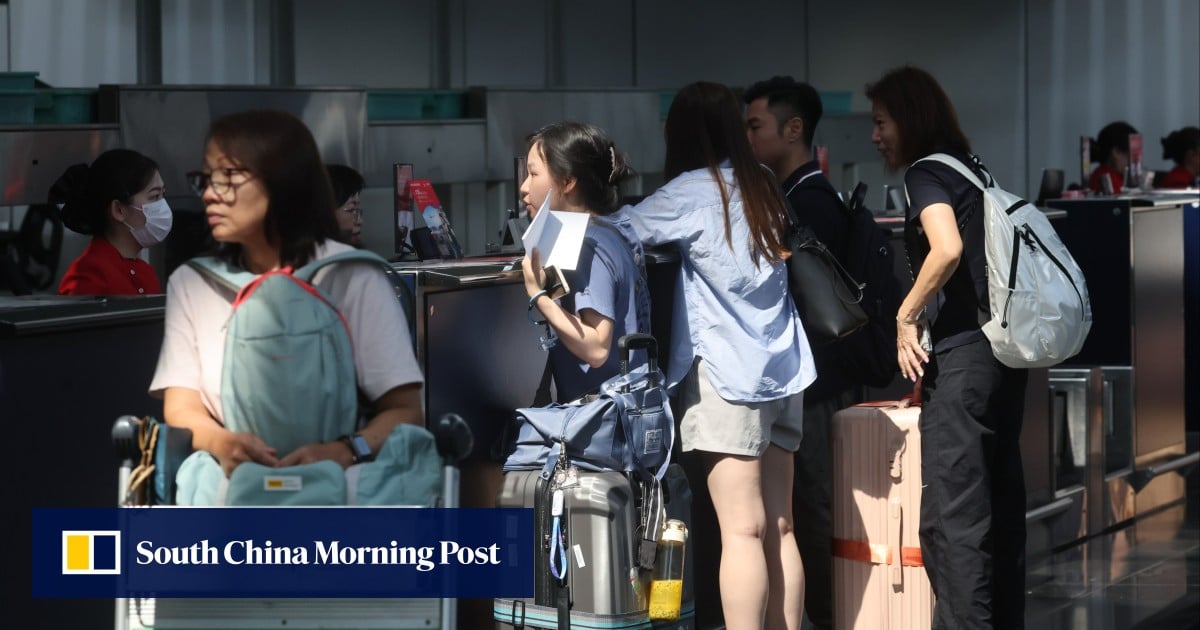The headline says a lot, and I mean it. Late last week, the Trump administration took its fight with Harvard University to the next level, revoking the school’s ability to enrol international students. A federal judge quickly issued a temporary block to the order, but the Department of Homeland Security, which issued the ban, has said that Harvard is trying to undermine presidential power and that the White House will continue trying to ban international students from the school.
This is, of course, a disaster — not only for a university where roughly a quarter of the student body comes from abroad and for the many other institutions with even higher tallies (at my son’s school, Northeastern, 39 per cent of the student body is foreign), but for America, full stop.
If we are now saying that the best and the brightest aren’t welcome here, then we are done as a nation.
Let’s look at the basic economic facts first. Immigration accounted for about half the growth in working age population in the US between 1995 and 2014. Immigration is also the reason that we haven’t had huge wage inflation over the past few years.
Beyond these obvious points, the highly educated and upwardly mobile migrants that come to America for higher education are what American exceptionalism is (or was) built on. While immigrants represent 13.6 per cent of the US population, they start a quarter of new businesses. Indeed, a study by the American Immigration Council last year found that 43.8 per cent of the Fortune 500 companies were started by immigrants or their children. Highly skilled migrant labour basically drives entrepreneurialism in the US.
My own family was vaulted in one generation from working-class to upper-middle-class because my father had the opportunity to come to the US from Turkey and get both a BS and an MS in industrial and electrical engineering, after which he started a manufacturing business which has employed any number of other upwardly mobile immigrants. As he sometimes tells me, he probably wouldn’t have come today, given the unwelcoming climate in the US and the fact that there are so many more opportunities for smart students abroad (indeed, America’s share of foreign students has been declining for a while now, as other countries court them).
This is obviously an economic disaster in the making. But there are a few other points to highlight here. First is why this isn’t a bigger fight already. I’m curious why all universities haven’t come together as a group to battle Trump’s takedown of individual schools. The Big Ten Midwestern land grant schools have done this, telling the administration that if you fight one school, you fight them all. But the Ivy League has not done the same, nor have the many rich liberal arts institutions that could well come under fire. Why is this? Do they believe that their large endowments will protect them? Can they not agree on how to deal with the administration? If any readers have thoughts or information on this, send them in.
Second, if American businesspeople don’t stand up as a group and fight this, I don’t know what will make them fight. This is their seed corn that is being squandered right now. And if universities can’t enrol foreign students, how long until businesses can’t employ them, full stop?
Finally, I think this move may be even more dangerous than what’s happening with tariffs. As stupid as “liberation day” was, you can make a coherent argument in principle for some targeted tariffs, and many countries use them on occasion as part of a larger economic toolbox. Aside from the Maga news value in saying “let’s keep rich Chinese kids and woke foreign student activists out of the country”, there is simply no good reason for this move against Harvard’s foreign admissions.
Rather, this seems to be yet another data point in America’s slow slide into fascism (this New York Times piece by Yale academics who study the topic and are leaving for Canada is worth a read).
I’m lucky to once again be back with my colleague Edward Luce in the Swamp. Ed, do you think this move is worse than tariffs? How would you rank it in terms of Bad Things Trump Has Done? And what does it portend?
Recommended reading
-
Time’s Charlotte Alter has a smart cover story on how the Democrats are rethinking everything in the wake of 2024. She focuses in particular on Connecticut Senator Chris Murphy and Massachusetts’ Congressman Jake Auchincloss, two thoughtful progressives who will be getting a lot more attention for their ideas on where the party should be heading.
-
It pained me (as a Biden administration fan) to read this Wall Street Journal review of Jake Tapper and Alex Thompson’s new book Original Sin: President Biden’s Decline, It’s Cover Up, and His Disastrous Decision to Run Again. But I plan to read the book, which feels like an urgently necessary political history of 2023-24.
-
I really enjoyed this New Yorker profile of Dolly Parton (yes, I’m a fan) and her long time marriage to the late Carl Dean.
-
And so, so many good pieces in the FT this week: don’t miss our foreign editor Alec Russell’s sharp take on South African politics, and our editor Roula Khalaf’s “Lunch with” conversation with Sam Altman at his Napa Valley retreat.
Edward Luce replies
First of all Rana, let me congratulate you on being a Dolly Parton fan. If US university administrations across the country had an ounce of that lady’s pizzaz and gumption, Trump would be on the back foot.
Like you, I’m puzzled as to why for the most part Trump, Kristi Noem, attorney-general Pam Bondi and others are being allowed to pick off universities one by one, as Trump has done with law firms. They would have far greater safety in numbers. The fate of Columbia, which submitted to every one of Trump’s demands yet has gained no reprieve in exchange, ought already to have galvanised collective action. That this has not happened will only embolden Trump. Time and again, we are reminded that if you act like prey Trump will eat you. Standing up to him might not succeed either. But rolling over guarantees failure.
In terms of where I rank Trump’s attack on Harvard with his other wars of choice on US institutions, I find it hard to prioritise. So many Trumpian jihads are competing for first prize. But I fully agree with you that the harm to America’s attractiveness as a destination, its future as the leader in global scientific and medical research, and the damage to the US economy, puts this in a special category of foolishness.
Even if Trump’s assault on Harvard is quashed by the courts, I doubt public opinion will punish him for his actions. There is no popular constituency for foreign students or for academic freedom. People love to hate the Ivy League. That Trump is trying to kill arguably the most valuable brand in education on the basis of America First is stupid and obscene. There is no silver lining.
Your feedback
We’d love to hear from you. You can email the team on swampnotes@ft.com, contact Ed on edward.luce@ft.com and Rana on rana.foroohar@ft.com, and follow them on X at @RanaForoohar and @EdwardGLuce. We may feature an excerpt of your response in the next newsletter


